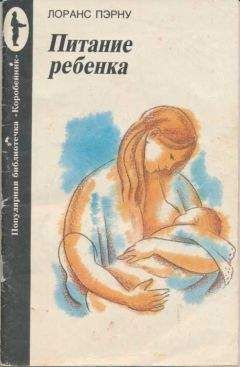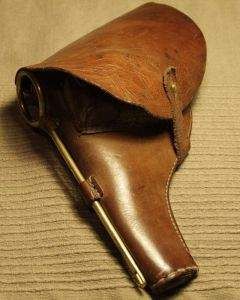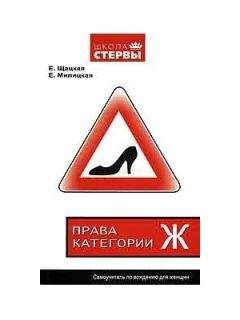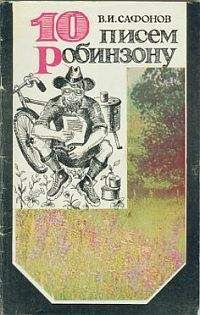Неизвестен Автор - Словарь американских идиом (8000 единиц)
Скачивание начинается... Если скачивание не началось автоматически, пожалуйста нажмите на эту ссылку.
Жалоба
Напишите нам, и мы в срочном порядке примем меры.
Описание книги "Словарь американских идиом (8000 единиц)"
Описание и краткое содержание "Словарь американских идиом (8000 единиц)" читать бесплатно онлайн.
[Sweeney] See: TELL IT TO THE MARINES or TELL IT TO SWEENEY.
[sweep] See: NEW BROOM SWEEPS CLEAN.
[sweep off one's feet] <v. phr.> To make (someone) have feelings (as love or happiness) too strong to control; overcome with strong feeling; win sudden and complete acceptance by (someone) through the feelings. * /The handsome football captain swept Joan off her feet when he said so many things to her at the dance./ * /Joan was swept off her feet when the football captain started flirting with her./ * /Mary is swept off her feet whenever she hears a band start playing./ * /John was swept off his feet when he won the contest./ Compare: BOWL OVER (2), CARRY AWAY.
[sweep out of] <v. phr.> To leave in an impressive, majestic manner. * /Offended by Tim's remark, Mary swept out of the room with her head high in the air./
[sweep the city] or [country] or [nation] or [world] <v. phr.> To gain great attention or popularity throughout the city, country, etc. * /Pavarotti's unmatched tenor voice swept the world in an unprecedented manner./
[sweep under the rug] <v. phr.> To hide or dismiss casually (something one is ashamed of or does not know what to do about). * /In many places, drug abuse by school children is swept under the rug./
[sweet] See: SHORT AND SWEET.
[sweetie pie] <n.>, <informal> A person who is loved; darling; sweetheart. * /Arnold blushed with pleasure when Annie called him her sweetie pie./ * /Nancy is Bill's sweetie pie./
[sweet on] <adj. phr.>, <informal> In love with; very fond of. * /John is sweet on Alice./
[sweet talk] 1. <n.>, <informal> Too much praise; flattery. * /Sometimes a girl's better judgment is overcome by sweet talk./ 2. <v.>, <informal> To get what you want by great praise; flatter. * /Polly could sweet talk her husband into anything./
[sweet tooth] <n. phr.> A great weakness or predilection for sweets. * /Sue has such a sweet tooth that she hardly eats anything else but cake./
[swelled head] <n.>, <informal> A feeling that you are very important or more important than you really are. * /When John won the race, he got a swelled head./ * /Pretty girls shouldn't get a swelled head about it./ - [swell-headed] <adj. phr.> * /After he was elected captain of the team, Bob became swell-headed./ Compare: BIG HEAD.
[swell-headed] See: SWELLED HEAD.
[swim] See: IN THE SWIM, SINK OR SWIM.
[swim against the current] or [swim against the stream] <v. phr.> To do the opposite of what most people want to do; go against the way things are happening; struggle upstream. * /The boy who tries to succeed today without an education is swimming against the stream./
[swine] See: CAST PEARLS BEFORE SWINE or CAST ONE'S PEARLS BEFORE SWINE.
[swing] See: IN FULL SWING.
[swing one's weight] <v. phr.> To use your personal power to get something done * /The President swings his weight to get laws passed./ * /Mr. Thomas swung his weight to get his son a job with the company./
[switch] See: ASLEEP AT THE SWITCH.
[switched on] <adj.>, <slang> 1. In tune with the latest fads, ideas, and fashions. * /I dig Sarah, she is really switched on./ 2. Stimulated; as if under the influence of alcohol or drugs. * /How come you're talking so fast? Are you switched on or something?/
[swoop] See: AT ONE FELL SWOOP.
[sword] See: AT SWORDS' POINTS, PUT TO THE SWORD.
[sword rattling] See: SABER RATTLING.
[sworn enemies] <n. phr.> People or groups or nations that have a long-standing dislike for each other. * /The Israelis and the Arabs used to be sworn enemies but hopefully they will sign a lasting peace accord./
[syllable] See: WORDS OF ONE SYLLABLE.
[system] See: PUBLIC-ADDRESS SYSTEM.
T
[T] See: TO A T.
[tab] See: KEEP TAB ON or KEEP TABS ON.
[table] See: AT THE TABLE or AT TABLE, COFFEE TABLE, PUT ONE'S CARDS ON THE TABLE or LAY ONE'S CARDS ON THE TABLE, TURN THE TABLES, WAIT AT TABLE or WAIT ON TABLE.
[tack] See: GET DOWN TO BRASS TACKS, GO SIT ON A TACK, SHARP AS A TACK.
[tackle] See: FLYING TACKLE
[tack on] <v. phr.> To append; add. * /We were about to sign the contract when we discovered that the lawyer had tacked on a codicil that was not acceptable to us./
[tag end] or [tail end] <n.>, <informal> The end, farthest to the rear, last in line, nearest the bottom, or least important. * /John was at the tail end of his class./ * /Mary's part in the play came at the tag end, and she got bored waiting./ * /Bill waited at the crossing for the tag end of a freight to go by./
[tail] See: COW'S TAIL, HEADS I WIN, TAILS YOU LOSE, MAKE HEAD OR TAIL OF, TURN TAIL.
[tail between one's legs] <n. phr.> State of feeling beaten, ashamed, or very obedient, as after a scolding or a whipping. * /The army sent the enemy home with their tails between their legs./ * /The boys on the team had boasted they would win the tournament, but they went home with their tails between their legs./ (So called because a beaten dog usually puts his tail down between his legs and slinks away.)
[tail end] See: TAG END.
[taillight] <n.> The rear red light of a car. * /My father was fined $15 for driving without a taillight./
[tailor-made] See: MADE-TO-MEASURE.
[tailspin] See: GO INTO A TAILSPIN.
[tail wags the dog] Said of situations in which a minor part is in control of the whole. * /He is just a minor employee at the firm, yet he gives everyone orders, a case of the tail wagging the dog./
[take] See: CAN TAKE IT WITH ONE, GIVE AND TAKE, GIVE ONE AN INCH AND HE WILL TAKE A MILE, GIVE OR TAKE, SIT UP AND TAKE NOTICE.
[take aback] See: TAKEN BACK.
[take a back seat] <v. phr.>, <informal> To accept a poorer or lower position; be second to something or someone else. * /During the war all manufacturing had to take a back seat to military needs./ * /She does not have to take a back seat to any singer alive./ Compare: PLAY SECOND FIDDLE.
[take a bath] <v. phr.>, <informal> To come to financial ruin. * /Boy, did we ever take a bath on that merger with Brown & Brown, Inc./
[take a bow] <v. phr.> To stand up or come on a stage to be clapped for or praised for success. * /The audience shouted for the author of the play to take a bow./ * /The basketball team should take a bow for fine work this season./
[take a break] <v. phr.> To have a brief rest period during the course of one's work. * /"You've worked hard. It's time to take a break," the boss said./
[take a chance] <v. phr.> To accept the risk of failure or loss. * /We will take a chance on the weather and have the party outdoors./
[take a crack at] <v. phr.> To try doing something. * /It was a difficult challenge to reorganize our antiquated campus, but the resident architect decided to take a crack at it./
[take a dig at] <v. phr.> To attack verbally; offend; denigrate. * /If you keep taking digs at me all the time, our relationship will be a short one./
[take a dim view of] <v. phr.> 1. To have doubts about; feel unsure or anxious about. * /Tom took a dim view of his chances of passing the exam./ * /Betty hoped to go on a picnic, but she took a dim view of the weather./ 2. To be against; disapprove. * /John's father took a dim view of his wanting to borrow the car./ * /The teacher took a dim view of the class's behavior./
[take a dislike to] Contrast: TAKE A FANCY TO.
[take a drop] <v. phr.> 1. To indulge in alcoholic drinks. * /Aunt Liz doesn't really drink; she just takes a drop every now and then./ 2. To lose value; decrease in price. * /Stocks took a big drop yesterday due to the international crisis./
[take advantage of] <v. phr.> 1. To make good use of. * /The cat took advantage of the high grass to creep up on the bird./ * /Jean took advantage of the lunch hour to finish her homework./ 2. To treat (someone) unfairly for your own gain or help; make unfair use of. * /He took advantage of his friend's kindness./ * /The little children did not know how much to pay for the candy, and Ralph took advantage of them./ Syn.: IMPOSE ON.
[take after] <v.> To be like because of family relationship; to have the same looks or ways as (a parent or ancestor). * /He takes after his father in mathematical ability./ * /She takes after her father's side of the family in looks./ Compare: LIKE FATHER, LIKE SON; RUN IN THE FAMILY.
[take a fancy to] <v. phr.> To become fond of; cultivate a predilection for. * /Aunt Hermione has taken a fancy to antique furniture./
[take a flop] <v. phr.> To fall heavily. * /I took a nasty flop on the ice-covered sidewalk./
[take aim] <v. phr.> To get ready to hit, throw at, or shoot at by sighting carefully. * /When the captain orders "Take aim," raise your gun to your shoulder and sight along the barrel at the target./ * /Before the hunter could take aim, the deer jumped out of sight./
[take a hand in] <v. phr.> To assist in the direction of; participate. * /The University Faculty Club decided to take a hand in helping the recent refugees./
[take a hard line with] See: HARD LINE, HARD-LINER.
[take a hike] See: GO FLY A KITE.
[take a hint] <v. phr.> To understand an allusion or a suggestion and behave accordingly. * /"I don't like people who smoke," she said. "Can't you take a hint and either quit smoking or seeing me?"/
[take a joke] <v. phr.> Accept in good spirit some derision directed at oneself. * /My brother has a good sense of humor when teasing others, but he cannot take a joke on himself./
[take a liking to] See: TAKE A FANCY TO.
[take a load off one's feet] <v. phr.> To alleviate one's fatigue
by sitting down during some taxing work. * /"You've been standing there for hours, Jake," John said. "Why don't you take a load off your feet?"/
[take a long breath] See: DRAW A LONG BREATH.
[take amiss] or [the wrong way] <v. phr.> To become offended due to a misunderstanding. * /"I hope you won't take it amiss," the boss said to Jane, "that I find you irresistibly attractive."/
[take a new turn] <v. phr.> To start a new course; decide upon a new direction. * /The company took a new turn under Jack's directorship./
[take a nose dive] <v. phr.> To plummet; fall sharply. * /The stock market took a nose dive after the news of the President's heart attack./
[take a notion] See: TAKE INTO ONE'S HEAD.
[take apart] <v. phr.> To dismantle; disassemble. * /Boys like taking radios and watches apart, but they seldom know how to put them back together again./
[take a poke at] See: TAKE A PUNCH AT.
[take a pot shot at] See: POTSHOT.
[take a powder] <v. phr.>, <slang> To leave hurriedly; run out or away; desert, flee. * /All the gang except one had taken a powder when the police arrived./
[take a punch at] or [take a poke at] or [take a sock at] <v. phr.> To try to hit (someone) with the fist; swing or strike at; attack with the fists. * /Bob was very angry and suddenly he took a punch at Fred./ * /Johnny knocked my hat off, so I took a poke at him./ * /I felt like taking a sock at Joe, but I kept my temper./
[take a risk] See: RUN A RISK.
[take a shine to] <v. phr.>, <slang> To have or show a quick liking for. * /He took a shine to his new teacher the very first day./ Compare: TAKE A FANCY TO.
[take a shot at] <v. phr.> To try casually; attempt to do. * /"Can you handle all these new book orders?" Tom asked. "I haven't done it before," Sally replied, "but I can sure take a shot at it."/
[take a sock at] See: TAKE A PUNCH AT.
[take a spill] <v. phr.> To fall down; tip over. * /During the harsh winter, when the sidewalk is covered with ice, many people take a spill./
[take at one's word] <v. phr.> To believe everything (someone) says; to act on what is said. * /If you say you don't want this coat, I'll take you at your word and throw it away./ * /When the king said he wished to be rid of his advisor, a friend took him at his word and murdered the councillor./
[take a stand] <v. phr.> To assert one's point. of view; declare one's position. * /It is time for American society to take a stand against crime./
[take a turn] <v. phr.> To become different; change. * /Mary's fever suddenly took a bad turn./ * /The story took an odd turn./ Often used with "for the better" or "for the worse". * /In the afternoon the weather took a turn for the better./ * /Suddenly the battle took a turn for the worse./
[take a turn for the better] <v. phr.> To start improving; start to get better. * /Aunt Hermione was very ill for a long time, but last week she suddenly took a turn for the better./
[take a turn for the worse] See: FOR THE WORSE. Contrast: TAKE A TURN FOR THE BETTER.
[take a whack at] See: TAKE A SHOT AT.
[take back] <v.> To change or deny something offered, promised, or stated; admit to making a wrong statement. * /I take back my offer to buy the house now that I've had a good look at it./ * /I want you to take back the unkind things you said about Kenneth./
[take by storm] <v. phr.> 1. To capture by a sudden or very bold attack. * /The army did not hesitate. They took the town by storm./ 2. To win the favor or liking of; make (a group of people) like or believe you. * /The comic took the audience by storm./ * /John gave Jane so much attention that he took her by storm, and she said she would marry him./ Compare: MAKE A HIT.
[take by surprise] <v. phr.> 1. To appear in front of someone suddenly or to suddenly discover him before he discovers you; come before (someone) is ready; appear before (someone) unexpectedly. * /The policeman took the burglar by surprise as he opened the window./ * /When Mrs. Green's dinner guests came half an hour early, they took her by surprise./ 2. To fill with surprise or amazement; astonish. * /Ellen was taken by surprise when the birthday cake was brought in./ * /When our teacher quit in the middle of the year to work for the government, it took us all by surprise./
[take by the scruff] <v. phr.> 1. To assert authority over a person. * /Tim's mother took him by the scruff and told him to get cleaned up./ 2. To punish a person. * /The boss took us by the scruff when he found us chatting idly by the coffee machine./ 3. To assume firm control over a job or a situation that has been causing some difficulty. * /Someone had better take the post office by the scruff; there are too many customer complaints pouring in./
[take care] <v. phr.> To be careful; use wisdom or caution. * /Take care that you don't spill that coffee!/ * /We must take care to let nobody hear about this./
[take care of] <v. phr.> 1. To attend to; supply the needs of. * /She stayed home to take care of the baby./ Syn.: KEEP AN EYE ON(2), LOOK AFTER. Compare: IN CHARGE(2). 2. <informal> To deal with; do what is needed with. * /I will take care of that letter./ * /The coach told Jim to take care of the opposing player./ Compare: SEE TO.
Подписывайтесь на наши страницы в социальных сетях.
Будьте в курсе последних книжных новинок, комментируйте, обсуждайте. Мы ждём Вас!
Похожие книги на "Словарь американских идиом (8000 единиц)"
Книги похожие на "Словарь американских идиом (8000 единиц)" читать онлайн или скачать бесплатно полные версии.
Мы рекомендуем Вам зарегистрироваться либо войти на сайт под своим именем.
Отзывы о "Неизвестен Автор - Словарь американских идиом (8000 единиц)"
Отзывы читателей о книге "Словарь американских идиом (8000 единиц)", комментарии и мнения людей о произведении.



















